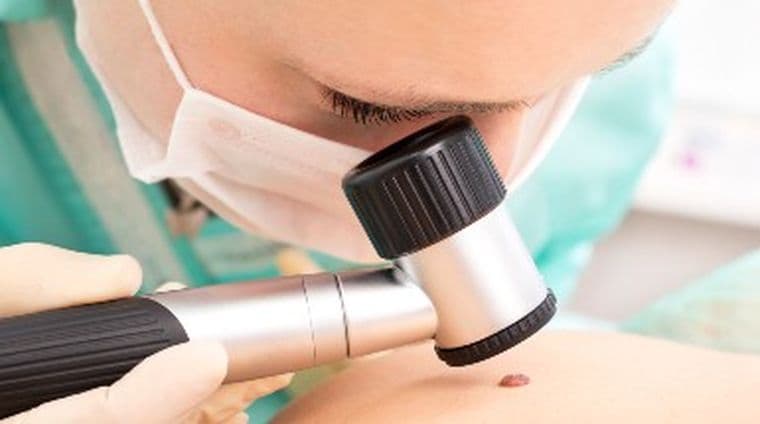NICE recommends adjuvant treatment for melanoma
Around 1,500 people aged 12 years and over with melanoma are set to benefit from pembrolizumab, a drug that reduces the chance of it returning.

Melanoma develops from melanocytes (cells in the skin’s epidermis) and pembrolizumab is an immunotherapy treatment which helps the body’s immune system to fight the cancer cells.
Pembrolizumab is the first treatment recommended by NICE for this stage of melanoma (2B and 2C) following surgery to remove the tumours (called an adjuvant treatment). Stage 2 melanoma is defined as having deeply penetrating tumours that have not spread to the lymph nodes or to other parts of the body.
An adjuvant treatment works to remove any remaining microscopic disease after surgery to reduce the risk of relapse or of the cancer spreading to other parts of the body. Currently, routine follow-up to monitor for signs of recurrence rather than any form of prevention of further tumours, is the standard care.
Clinical evidence shows that pembrolizumab increases the length of time before the cancer returns compared with routine follow-up.
Having a medicine that can mop up any residual cancer cells after surgery is really important as it significantly reduces the risk of the cancer returning.
We have worked at pace to review the evidence for pembrolizumab and I am delighted we have been able to recommend it and enable people to access this transformational care.
Pembrolizumab was recommended by NICE as an adjuvant treatment for resected stage 3 melanoma in February 2022.
We are constantly looking for new and innovative cancer treatments as part of our fight against the disease - and the approval of this new drug will benefit hundreds of patients.
It means people recovering from skin cancer will have a much lower risk of their cancer returning, helping them to lead longer and healthier lives.
Working closely with NICE, the deal NHS England agreed with MSD for this new treatment option will give 1,500 melanoma patients in England who have already had surgery a better long-term chance of being cancer-free and follows the 100th treatment fast-tracked to patients through the Cancer Drugs Fund.
If you notice potential cancer symptoms, please come forward for care.
It is important to find and treat melanoma early because it can spread through the skin and to other parts of the body. There are multiple risk factors that increase the likelihood of developing melanoma, including a family history of melanoma, fair skin and hair colour, and intense or chronic exposure to ultraviolet (UV) light.